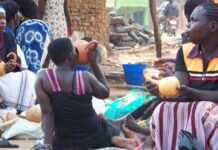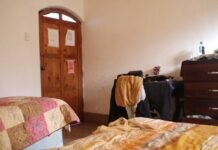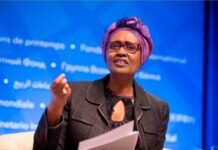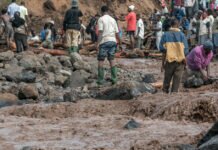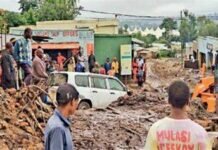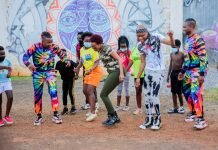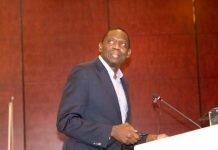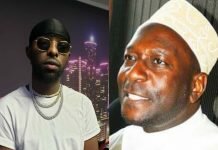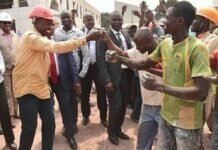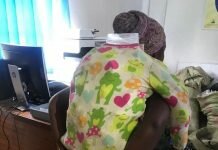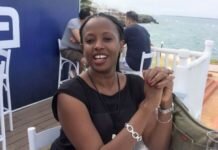
In a televised statement, a group of senior Gabonese officers said they seized power after Bongo, the incumbent president, was announced to be re-elected in a contested election. The election results were canceled, state institutions dissolved, and all borders closed until further notice, they said.
Gabon’s national electoral body said earlier in the day that Bongo from the ruling Gabonese Democratic Party was re-elected for a third term in Saturday’s election. However, the officers said the election was not credible.
“In the name of the Gabonese people … we have decided to defend the peace by putting an end to the current regime,” the officers said on national television. They read a statement on behalf of the Committee for the Transition and Restoration of Institutions.
“All the institutions of the republic are dissolved, in particular the government, the Senate, the National Assembly, the Constitutional Court, the Economic, Social and Environmental Council, the Gabonese Center for Elections,” read the statement.
Ali Bongo, 64, once served as minister of defense and other posts in the government. He was elected president of the Gabonese Republic in 2009 and was re-elected in 2016.
In another statement released Wednesday, the military said, “President Ali Bongo is kept under house arrest, surrounded by his family and his doctors.”
The officers said the son of the president, Noureddin Bongo Valentin, and several other senior officials close to Bongo were arrested.
In a video clip released on Wednesday afternoon, Bongo said he is at his residence while his wife and son are in other places.
“Nothing is happening. I don’t know what is going on. So I am calling on you to make noise, make noise, make noise really. I’m thanking you,” said Bongo in his first public appearance after the coup.
Gabon is a member of the Central African Economic and Monetary Community, CEMAC, an economic bloc that has some of the world’s longest serving leaders.
Eighty-one-year-old President Teodora Obiang Nguema of Equatorial Guinea won elections for a sixth term in 2022. Obiang came to power in a 1979 military coup and is the world’s longest-serving head of state.
In the Republic of Congo, 80-year-old Denis Sassou Nguesso has been president for all but five of the last 44 years.
And in Cameroon, 90-year-old Paul Biya has been the president for 41 years, since 1982.
Central African Republic President Faustin Archange Touadera hasn’t been around as long but recently extended the presidential term from five to seven years and did away with the two-term limit for presidents. The C.A.R. opposition says Touadera created a life presidency for himself.
Langeh Ngah Derick, lecturer at the International Relations Institute of Cameroon, says these leaders’ desire to hang onto power is causing systematic problems and widespread frustration.
“Something has to be done especially in French tropical Africa, ex-French colonies, particularly where egoistic interest frustrates most of the youths,” he said. “You come out from the university, policies do not favor your integration into the system and to help build your nation especially in some of these Francophone African countries.”
Ngah said if the opposition in French-speaking central African countries remains fragmented and leaders keep their strong grip on power, the trend of militaries taking power — as happened in Gabon Wednesday — may spread even further.
Source:






